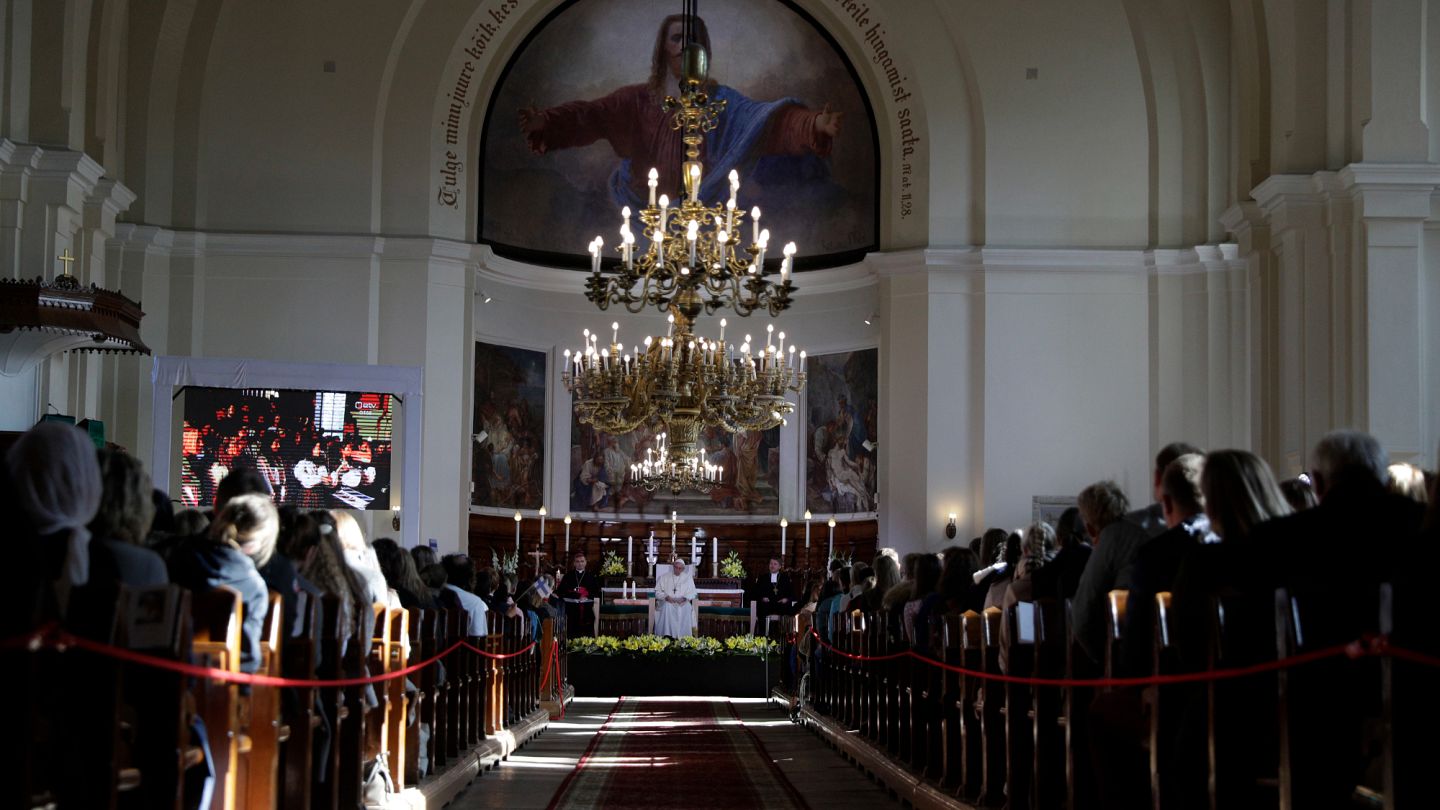
In a historic event for Estonia and its small Catholic community, the beatification Mass of Archbishop Eduard Profittlich SJ (1890-1942) took place in Tallinn’s Freedom Square on Saturday. Profittlich is the first Estonian to be elevated to the altars by the Catholic Church.
“This day is a great gift not only to the Catholic Church in Estonia, but to the entire Catholic Church and Estonian society. Archbishop Profittlich’s fidelity to Christ and his love for Estonia up to his martyrdom are a living example of hope, courage and love for all Christians,” wrote Bishop Philippe Jourdan of Tallinn on the occasion of the beatification.
The beatification was originally scheduled for the 17th of May this year, but was postponed after the death of Pope Francis and the election of Pope Leo XIV.
The ceremony was presided over by Cardinal Christoph Schönborn of Vienna, as the Pope’s envoy. Co-concelebrants included Cardinal Stanislaw Dziwisz of Krakow, Archbishop Georg Gänswein – Apostolic Nuncio to the Baltics, Bishop of Tallinn Philippe Jourdan and Bishop of Trier Stephan Ackermann. The mass was accompanied by the choir of St Peter and Paul Cathedral in Tallinn, conducted by Pille Raitmaa.
Who was Archbishop Eduard Profittlich?
Born in Germany, Eduard Profittlich moved to independent Estonia in the 1930s. He took Estonian citizenship, became apostolic administrator of the country and was later ordained archbishop. Although he was not from Estonia, he was called “an Estonian by the blood he shed”.
After the first Soviet occupation in 1940, Archbishop Profittlich decided not to leave Estonia. A year later the Soviet authorities arrested him, accusing him of being an “agent of the Vatican”. He died in 1942 in a prison in Kirov, Russia, remaining faithful to the church until his death.
The current head of the Catholic Church in Estonia, Bishop Philippe Jourdan, said Profittlich’s martyrdom is a powerful testimony to faith, courage and love – virtues that know no boundaries of nationality, language or politics.
“He chose to truly share the tragic fate of the tens of thousands of Estonians deported and died in Soviet labour camps,” – Bishop Jourdan said. “It can be said that he was Estonian not by the blood he inherited, but by the blood he shed,” the bishop said.
In the chapter house of the Dominican monastery in Tallinn, the uninterrupted reading of the names of 22 600 Estonians – victims of communism – will continue from today until tomorrow.
On Sunday the 7th of September, two commemorative Masses will be celebrated at the Cathedral of St Peter and St Paul.